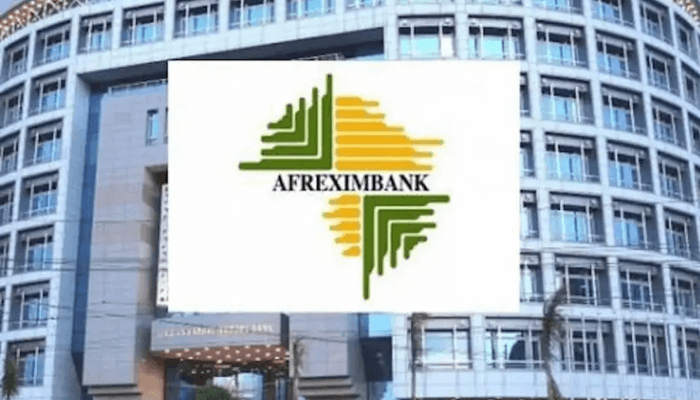Afreximbank targets $250bn balance sheet growth in 10 years
Cairo, Egypt || The African Export-Import Bank (Afreximbank)’s shareholders has set an ambitious target to grow the balance sheet of the bank to $250 billion within 10 years.
George Elombi, president of Afreximbank said this in his inaugural speech in Cairo, Egypt, reaffirming his faith in Africa’s ability to achieve the goal.
He said, “When we consulted with leaders, including President Abdel Fattah El-Sisi of Egypt, who is both a staunch supporter and a major shareholder, he challenged us to aim for $350 billion,” Elombi said. “That challenge is not about numbers; it is a call for greater impact.”
“Only a strong, well-capitalised institution can make the scale of investments required to transform Africa’s trade and development landscape,” he said. “As we invest in export processing zones, we will face critics who misunderstand our mission. Ignore them. Unless we process, nothing will change. To do that, Africa must have a strong financial institution. You have built one, and we will make it stronger,” he said.
Read also: Oramah turns Afreximbank into Africa’s development supermarket, says Elombi
He outlined his strategic priorities for the next five to ten years. The first, he said, is to promote value addition and strategic minerals processing. “We will no longer finance the export of Africa’s raw wealth,” he declared. “No more raw Nigerian bauxite, no more raw Cameroonian or South African manganese. We will focus on domestic processing.” He emphasised that processing minerals locally would create jobs, boost foreign exchange earnings, and stimulate infrastructure development. “We will establish a strategic minerals development program to finance entire value chains from extraction to refining and manufacturing finished goods,” he said, pledging to collaborate with the African Finance Corporation and the Trade and Development Bank in Nairobi to achieve this.
The second focus, he said, is to deepen intra-African trade and regional integration. “Our value addition agenda will succeed only if we secure markets for the goods we produce,” he explained. He pledged to work with the African Continental Free Trade Area (AfCFTA) Secretariat to dismantle trade barriers and foster the free movement of goods, services, capital, and people across Africa. In a pointed message to governments, he said, “Fear not your own people. Africans fear African people more than they fear foreigners. Open your borders. Your people will do you no harm.”
Elombi’s third priority is to develop trade-enabling infrastructure. “We cannot have trade without infrastructure,” he said, emphasising the need for investments in roads, railways, ports, pipelines, energy, and logistics hubs. He announced plans to create a shared, integrated infrastructure ecosystem for trade, leveraging existing assets across borders to reduce costs and boost connectivity. He also underscored the importance of embracing digital and technological innovation. “Africa must not be left behind,” he said, pledging investments in digital infrastructure, e-commerce platforms, payment systems, artificial intelligence, and machine learning. He hinted at exploring “a Pan-African digital currency” and called for mobilising global African capital to finance development.
Elombi stressed that mobilising global African resources and capital, whether held by diasporans, sovereign wealth funds, or private African businesses was essential for development. “This is not just about finance; it is about ownership. It is about redefining the narrative of African development. It is time for Africa’s wealth, wherever it resides, to work for our own future,” he said.
Read also: Edun administers oath of office to Afreximbank’s new president
Turning to the legacy of Afreximbank, Elombi said the institution, created 32 years ago, had achieved remarkable growth. “In just the last 10 years, total assets and guarantees grew more than eightfold to $43.5 billion,” he stated. Total revenues, he said, rose sevenfold to $3.2 billion, while net income reached $1 billion at the end of 2024, representing a 700 percent increase over a decade. The bank’s total capital rose from $1 billion in 2015 to $7.5 billion in 2024, with callable capital increasing from $450 million to $4.5 billion. He also highlighted the creation of subsidiaries such as the Fund for Export Development in Africa, based in Rwanda, and others, which he said are becoming additional sources of revenue. Contrary to some critics, he argued, these subsidiaries are “not wasting funds” but rather “building the capital base needed for larger interventions.”
Elombi reaffirmed his commitment to preserve and deepen these achievements. “Our mission is to transform the structure of African trade,” he said. “Africa’s trade remains too dependent on commodity exports, and that must change. We must process, we must produce. Unless we produce, we will not trade among ourselves, and trade itself is not the end, it is the means to develop.”

